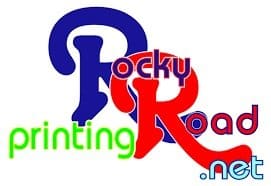Screen Printing with Plastisol Ink vs. DTF Printing: Why Plastisol Reigns Supreme
Screen Printing with Plastisol Ink vs. DTF Printing: Why Plastisol Reigns Supreme
When it comes to custom apparel printing, two of the most popular methods are screen printing with plastisol ink and Direct-to-Film (DTF) printing. While DTF has gained attention as a newer technology, plastisol screen printing remains the gold standard for high-quality, durable, and professional apparel decoration.
In this article, we’ll break down the differences between screen printing with plastisol ink vs. DTF printing, highlighting why plastisol is the superior choice for most custom apparel needs.
What is Plastisol Screen Printing?
Plastisol screen printing is the industry standard for creating long-lasting, vibrant designs on fabric. This technique involves pushing thick, plastisol ink through a mesh screen onto the garment. The ink is then cured at high temperatures, bonding it to the fabric and creating a bold, durable print.
✔ Rich, vibrant colors
✔ Extremely durable and long-lasting
✔ Ideal for bulk orders
✔ Works on various fabric types
What is DTF Printing?
DTF (Direct-to-Film) printing is a heat transfer process where a design is printed onto a special PET film, coated with adhesive powder, and then heat-pressed onto a garment. Unlike Direct-to-Garment (DTG) printing, which prints directly on fabric, DTF transfers allow for flexibility in application.
✔ No setup fees for small orders
✔ Works on different fabric types
✔ Can print full-color designs, including gradients
✔ Good for one-off or short-run orders
While DTF offers some advantages, it falls short in quality, durability, and cost-effectiveness compared to plastisol screen printing.
Why Plastisol Screen Printing is Superior to DTF Printing
1. Durability & Longevity
✅ Plastisol screen printing lasts for years without cracking, peeling, or fading. Because the ink sits on top of the fabric and is heat-cured, it creates a strong bond that withstands repeated washes.
❌ DTF prints tend to degrade faster—the heat transfer film is more prone to cracking and peeling over time, especially with frequent wear and washing.
👉 Winner: Plastisol Screen Printing – Best for long-lasting apparel.
2. Vibrancy & Color Quality
✅ Plastisol inks produce bold, opaque colors that pop on both light and dark garments. The ink sits on the fabric rather than soaking in, resulting in rich, vibrant hues that stay true even after multiple washes.
❌ DTF printing relies on CMYK ink and a transfer process, which can result in duller colors and less opacity on darker fabrics.
👉 Winner: Plastisol Screen Printing – Ideal for bright, bold designs.
3. Feel & Comfort
✅ Plastisol prints can be soft and flexible, especially when using modern ink formulations and techniques like soft-hand printing. Properly applied plastisol ink does not make the garment feel stiff.
❌ DTF prints have a noticeable texture and thicker feel due to the transfer film and adhesive layer. This can make the design feel more like a plastic decal rather than an integrated part of the fabric.
👉 Winner: Plastisol Screen Printing – Offers a better feel, especially for high-quality apparel.
4. Cost-Effectiveness for Bulk Orders
✅ Screen printing is highly cost-effective for bulk orders. While the initial setup requires creating screens, once prepared, printing large quantities is fast and economical.
❌ DTF printing is better for small runs, but costs quickly add up for larger orders. Since each transfer requires individual printing and adhesive application, bulk production takes longer and costs more compared to screen printing.
👉 Winner: Plastisol Screen Printing – Best for bulk printing and business branding.
5. Washability & Wear Resistance
✅ Plastisol screen prints maintain their integrity after hundreds of washes. They resist fading, cracking, and peeling, making them ideal for workwear, sports apparel, and everyday wear.
❌ DTF prints have a shorter lifespan, often showing cracks, peeling, and fading after repeated washing. Since the ink is transferred via adhesive, it lacks the direct fabric bond of screen printing.
👉 Winner: Plastisol Screen Printing – Provides long-lasting, professional-quality prints.
6. Customization & Specialty Inks
✅ Screen printing allows for specialty effects, including:
✔ Metallic, glow-in-the-dark, and puff inks
✔ Discharge printing for soft-hand feel
✔ Neon and specialty finishes
❌ DTF printing is limited to standard color prints. While it can handle gradients, it lacks the ability to create raised, textured, or specialty ink effects.
👉 Winner: Plastisol Screen Printing – More customization options for unique designs.
Final Verdict: Plastisol Screen Printing Wins 🎉
| Feature | Plastisol Screen Printing | DTF Printing |
|---|---|---|
| Durability | ✅ Long-lasting, no peeling/cracking | ❌ Prone to cracking & peeling |
| Color Vibrancy | ✅ Bold, opaque, high-quality | ❌ Less vibrant, dull on dark fabrics |
| Comfort | ✅ Soft-hand printing available | ❌ Thicker, plastic-like texture |
| Cost-Effectiveness | ✅ Best for bulk orders | ❌ More expensive for large orders |
| Washability | ✅ Withstands hundreds of washes | ❌ Fades faster with washing |
| Customization | ✅ Metallic, glow, puff inks available | ❌ Limited to standard colors |
While DTF printing has its place for one-off prints and short runs, plastisol screen printing remains the best choice for businesses, teams, and brands looking for high-quality, long-lasting custom apparel.
👉 If you want durable, vibrant, and professional-quality prints, screen printing with plastisol ink is the way to go!
Need High-Quality Custom Apparel? Contact Rocky Road Printing Today!
At Rocky Road Printing, we specialize in top-tier screen printing with plastisol inks for businesses, sports teams, events, and brands. Whether you need custom t-shirts, hoodies, or uniforms, we deliver superior quality, vibrant colors, and unbeatable durability.
📞 Contact us today for a quote!
🌎 Visit our website to learn more about our printing services!
#ScreenPrinting #PlastisolInk #DTFPrinting #CustomApparel #RockyRoadPrinting #DurableDesigns #QualityMatters

